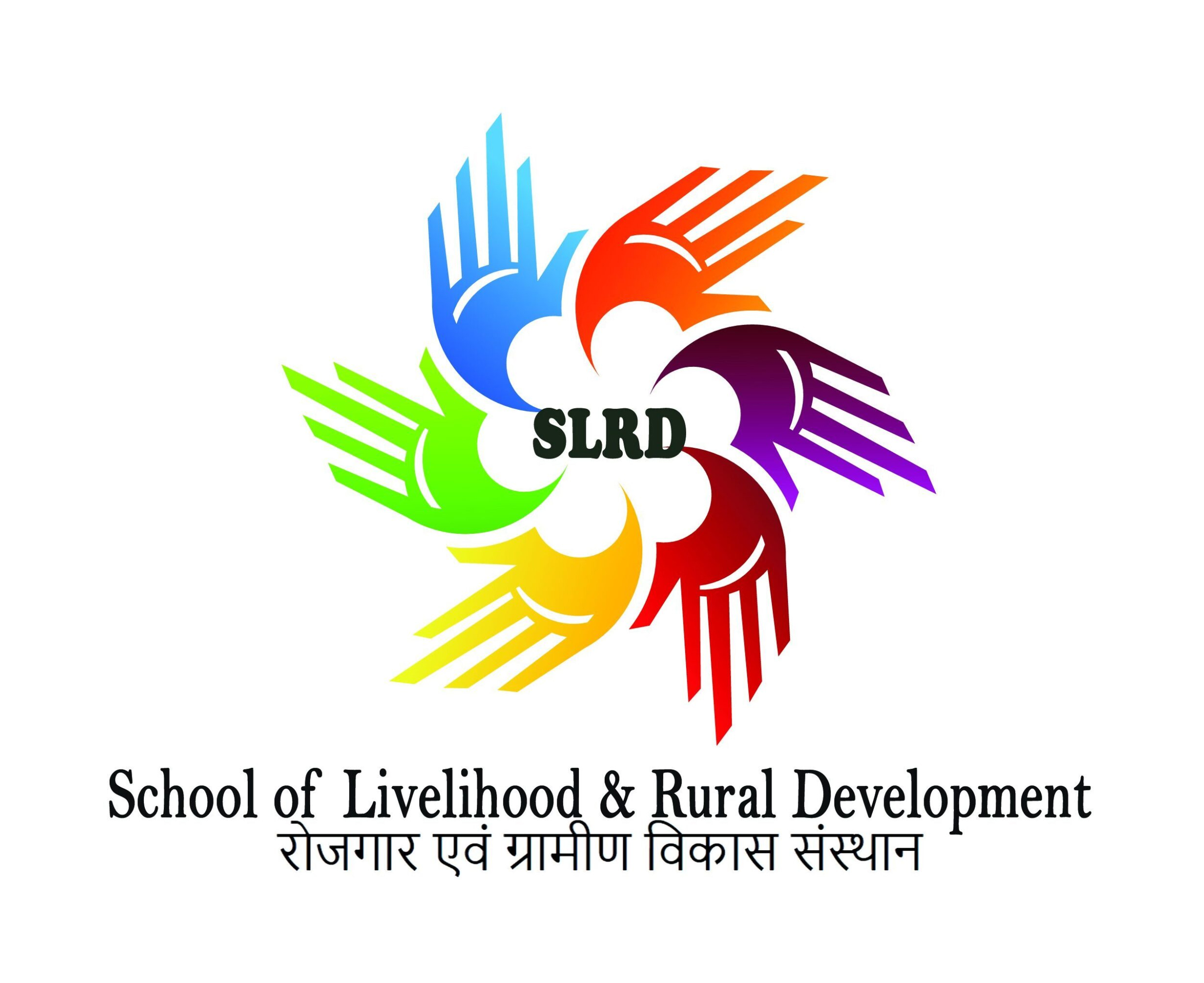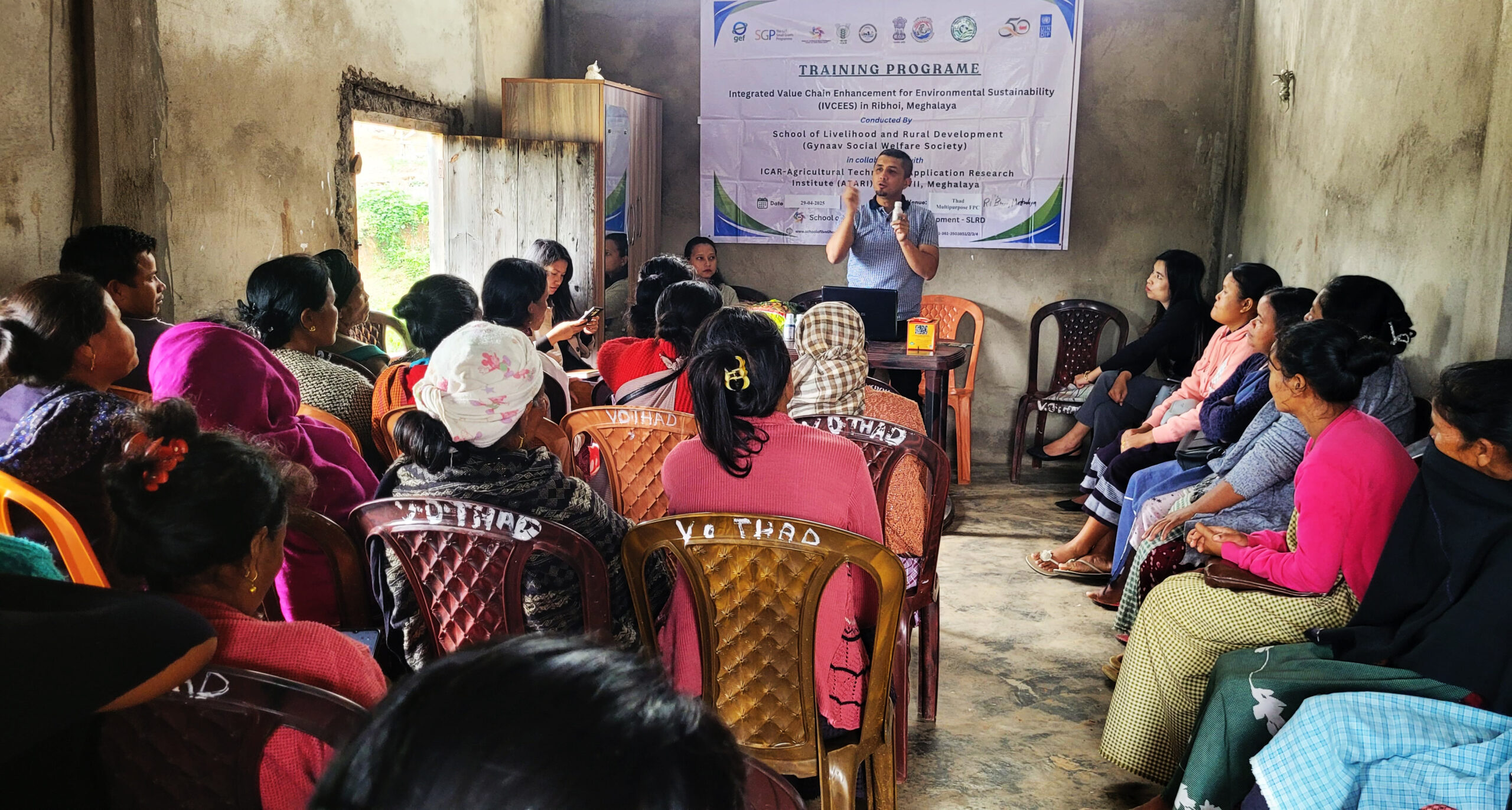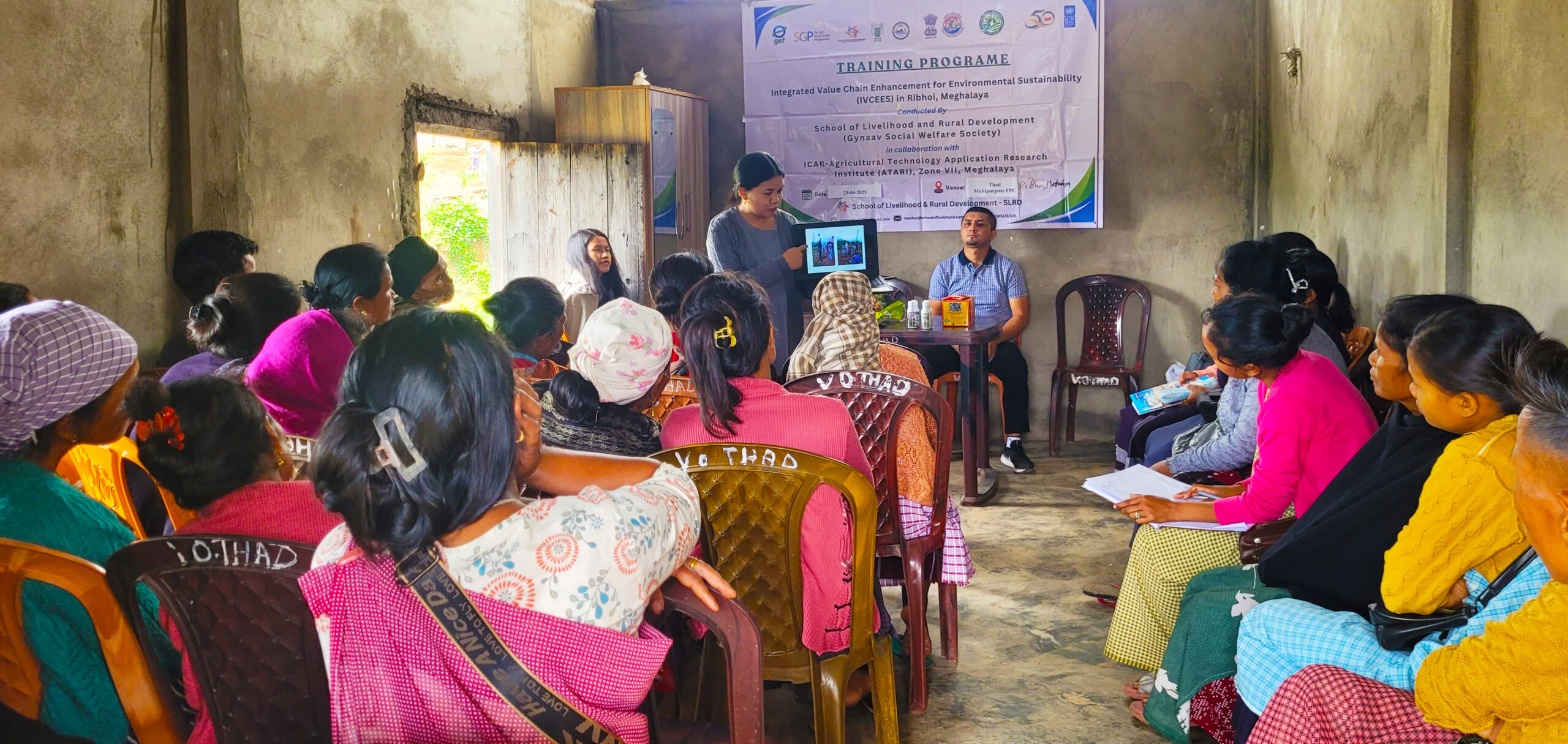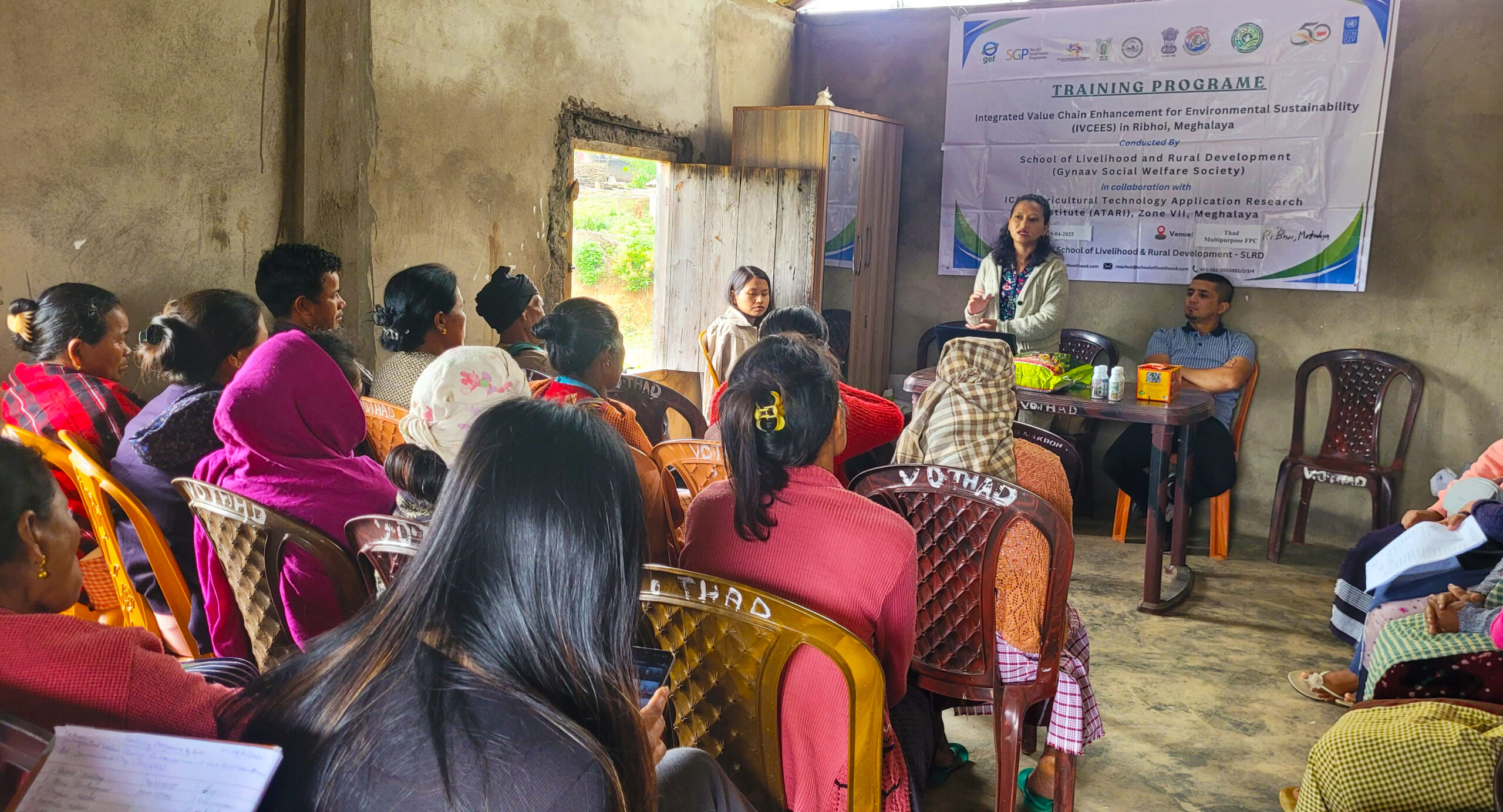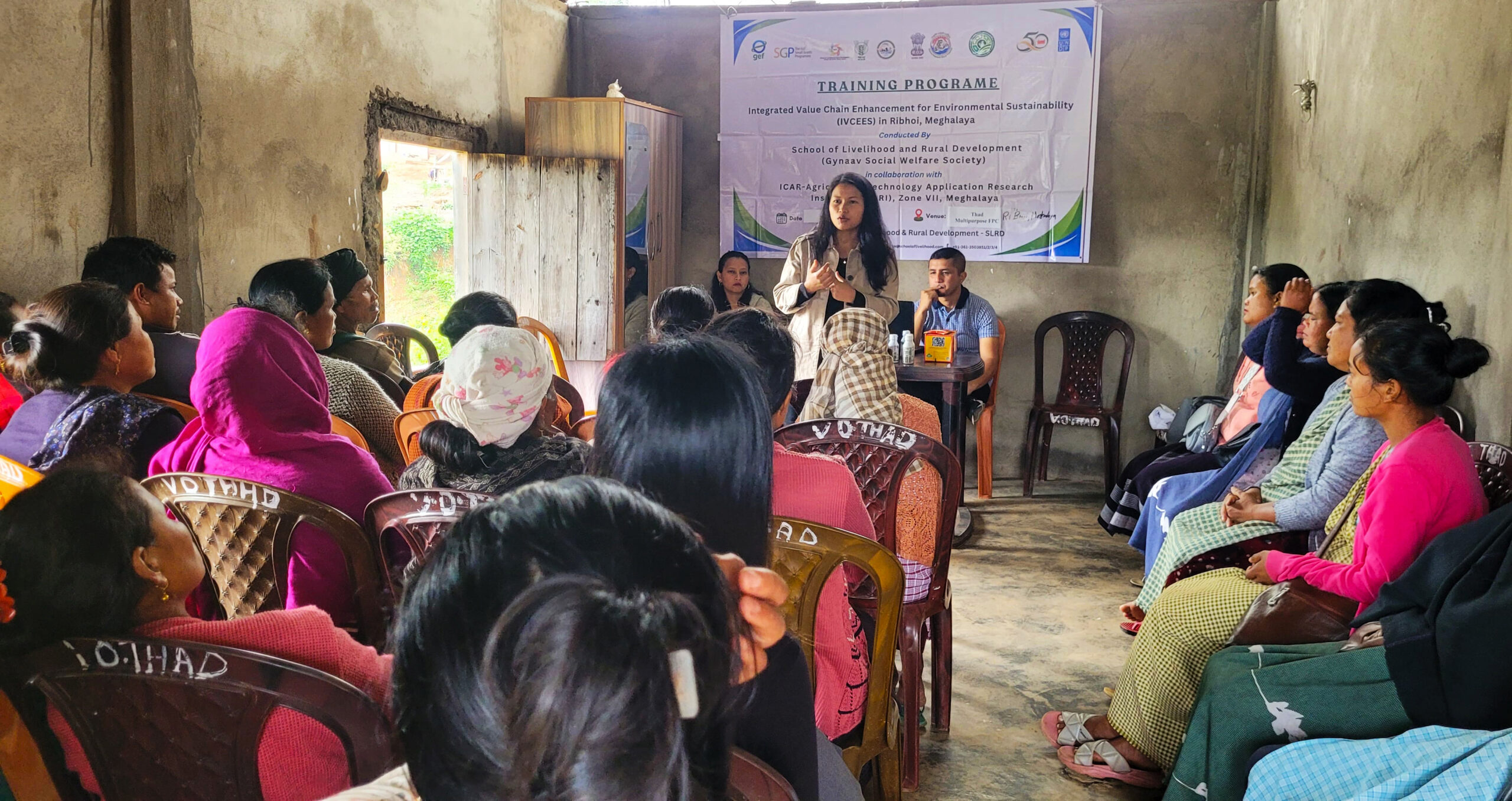Thad Village, April 29, 2025
The School of Livelihood and Rural Development (SLRD) organized a one-day workshop on Permaculture at the Thad Multipurpose Co-operative Society with the goal of equipping farmers with sustainable agricultural knowledge and practices. The event brought together over 30 farmers, local representatives, and resource persons to explore the principles and practical applications of permaculture — a design system that works in harmony with nature.
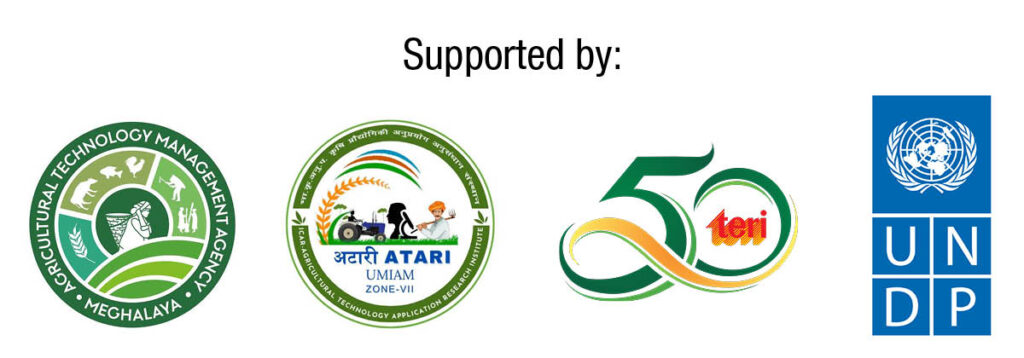
Understanding Permaculture
Permaculture is more than just a method of farming; it’s a philosophy for sustainable living. The workshop aimed to introduce this holistic approach to rural farmers by focusing on how to create self-sustaining ecosystems that integrate food production, water management, and community living.
Participants were engaged through a combination of expert presentations, group discussions, and hands-on sessions. The workshop emphasized designing agricultural systems that mimic natural processes, promoting long-term resilience and productivity.
Key Highlights of the Workshop
- Introduction to Permaculture Ethics and Principles
The workshop began with an overview of permaculture — its ethics, principles, and the differences from conventional agriculture. - Designing with Nature
Sessions addressed natural patterns, soil health, and water cycles as foundational elements of sustainable design. - Practical Techniques
Participants learned about composting, natural building, food forests, companion planting, and the importance of using bio-inputs.
Session Summary
- Session 1: Mr. Graphite Lyngdoh from Agricultural Technology Management Agency (ATMA), explained the fundamentals of permaculture, the importance of soil health, mixed cropping, and using renewable resources during dry seasons.
- Session 2: Ms. Iladeibiang Kharkongor introduced modern, eco-friendly farming techniques to maintain soil health and reduce disease infestation.
- Session 3: Mrs. Grace Nora Kharsamai advocated for replacing chemical-based inputs with bio-fertilizers, bio-pesticides, and bio-insecticides to improve soil quality and support organic farming.
- Session 4: Ms. Bada Aihok Khymdeit educated farmers about the new Soil Health Card initiative by the Directorate of Agriculture, which helps farmers understand soil pH levels and suitable crop selection.
- Session 5: Mr. Lyngdoh concluded with a demonstration of vermicompost, bio-pesticides, and bio-insecticides, encouraging an open interaction between farmers and experts.
Workshop Objectives
The training emphasized several core goals:
- Designing sustainable ecosystems that regenerate naturally
- Promoting environmental care through biodiversity conservation and waste reduction
- Improving food security and self-reliance
- Supporting community well-being and social equity
- Encouraging the wise use of natural resources
- Restoring degraded lands to productive use
Participants and Engagement
Thirty farmers from Thad and nearby villages attended the workshop. Their enthusiastic participation in discussions and activities showed a clear interest in adopting sustainable practices and improving their local farming systems.
Key Achievements and Broader Impact
The workshop highlighted global and local success stories where permaculture has:
- Regenerated degraded landscapes
- Established sustainable food systems
- Inspired eco-friendly housing and energy models
- Fostered community resilience and education
- Gained recognition in climate action and conservation
Conclusion
The “Permaculture” workshop proved to be an enriching experience for all participants. It showcased how a shift in mindset — from conventional to ecological — can lead to sustainable, self-reliant communities. As participants return to their fields equipped with new tools and knowledge, they carry the potential to bring about lasting change in their environment and society.
Permaculture is not just a farming technique; it’s a lifestyle rooted in thoughtful design, responsible resource use, and community collaboration — a model for living in true harmony with nature.
Voices from the Field: Farmer Testimonials
The impact of the workshop was best reflected in the words of the participants:
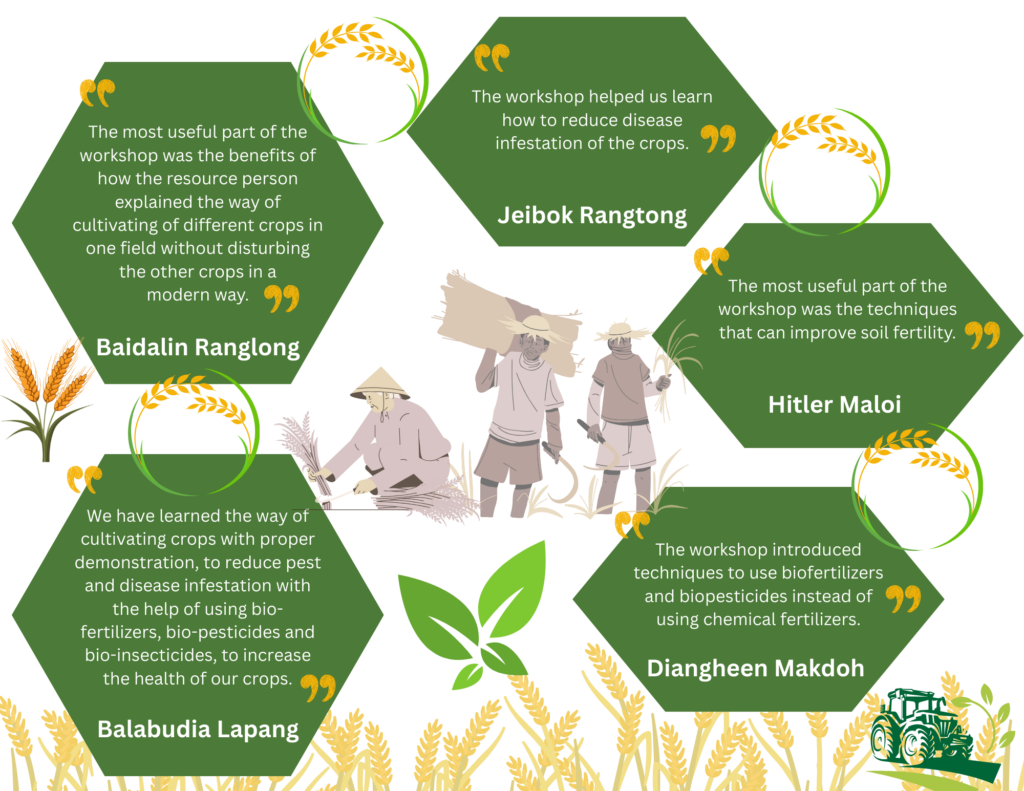

“Theoretically the training session was a success and the farmers were very attentive and interactive. Demonstration plots for a practical session on permaculture/integrated farming system is highly recommended to encourage farmers apply the technologies on their fields. Selection of progressive farmers in different circles for demonstrations is mandatory. Regular Follow ups should be conducted for a positive impact.”
Graphite Stone Lyngdoh
Block Technology Manager, ATMA Meghalaya

“The content was very relevant to the farmers for use in their daily farming practices. The farmers were very attentive throughout the sessions and interacted well with the team. The course materials was made very easy to understand and practice by the farmers.”
Iladeibiang Kharkongor
Assistant Technology Manager, ATMA Meghalaya

“The training content chosen was informative and highly applicable to the agri-based FPC and the daily farming activities of the farmers. The training will empower the FPC of Thad to be independent and environmentally sustainable. Additionally, the farmers showed great interest and actively participated throughout the session.”
Bada Aihok Khymdeit
Assistant Technology Manager, ATMA Meghalaya

“The content of the training was simple and lucid, informative and thought-provoking to the farmers. They responded throughout the session with a sense of eagerness and enthusiasm as well as clarifying their doubts and grievances. Overall the training was an enlightening and a valuable one.“
Grace Nora Kharsamai
Assistant Technology Manager, ATMA Meghalaya
